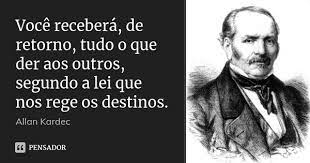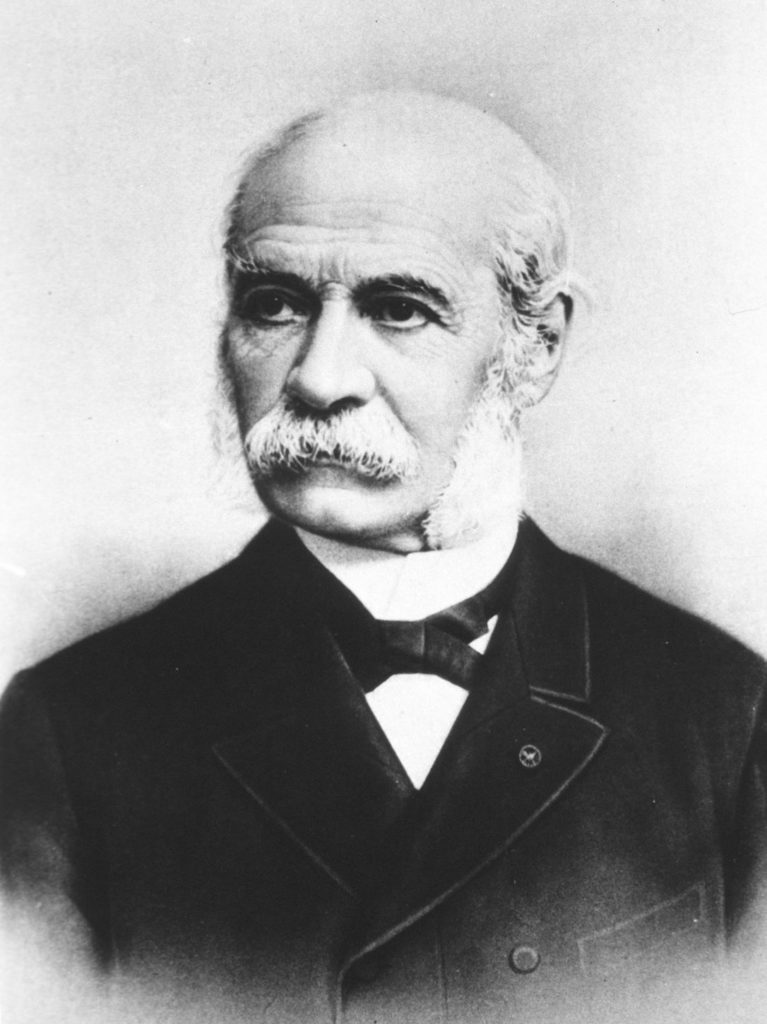Under a very interesting title, I found this work today, a compendium of questions and answers, freely distributed in PDF on the Internet. I then went to analyze it, which is why I leave here my observations on this work.
I must emphasize that the intention is not to denigrate or mock the efforts that many make, and that, I believe, it has a good intention, almost always. However, when we talk about Spiritism, we need to understand that this science, in short, do not make isolated opinions, and that any spiritist communication that has not met the method of double control of reason and the universality of the teachings of the Spirits cannot be taken, but as an opinion. In the article "The role of the researcher and the medium in communications with the Spirits” We have already pointed out, according to Spiritism, the various reasons for this.
This work begins like this:
This work, created by incarnate and disincarnate spirits, is structured in questions and answers, explanatory notes and complementary texts, footnotes and prayers. It is intended for all who wish to initiate or deepen their bond with the Creator through instructive and reflective reading, prayer, the practice of love and charity, self-knowledge and the constant search for intimate reform.
Until recently, I didn't see this as a problem. Today, however, I understand that there is a big mistake in the so-called “intimate reform”, which Never was, neither with these words nor with others, in the work of Allan Kardec. Because? Simply because you don't reform what isn't broken. Well, we are spirits in evolution, making mistakes and getting it right and, sometimes, acquiring bad habits that become imperfections. When there is imperfection, we will have to do some work to detach ourselves from it - then there is a certain work of "reform" - however we cannot accept as a generalized assumption the fact that we all must reform ourselves, as the Spiritist Movement has widely proclaimed . This places a heavy burden of guilt on the shoulders of those who are simply seeking to learn and evolve, but who start to believe themselves, always, as “broken things” – and this is, deep down, linked to the false conceptions of the fall through sin.
Complementation
In Chapter I - Complementation - I - Purpose of the Work, the following is said:
1. For what purpose was The Spirits' Book released in 1857 by Allan Kardec?
— To liberate the incarnates through the truth, to instruct them and, consequently, to lead them to the practice of good.
A. Has this purpose been achieved?
- Yea; obviously it depends on the free will of each individual, but everything is in God's plans.
B. Given this, is it necessary to complement it?
— Yes, communications and ways of understanding change over time, and it is important that the teachings keep pace with these changes.
Note: The intention will never be to contest what has already been written, but to state it with more clarity and objectivity, so that there is no dubious understanding, bringing the truth more explicitly, in order to promote the practice once exemplified by the master Jesus.
It is clear that, in order to complement something, especially when it comes to complementing Spiritism, through “communications from Superior Spirits”, it is absolutely necessary that a series of requirements be fulfilled:
- The human being must be prepared for this, having known and understood deeply, and in a contextualized way, everything that gave basis to the formation of this Doctrine. As we shall see, this first point has not been met.
- When the Spirits demand to help the man to reach new knowledge, they act distributing the same knowledge through all the corners of the world, simultaneously. That is required so that, in the light of logic and reason, researchers of the doctrine can confront the ideas transmitted from all sides, carrying out the same scientific method that Kardec did. Perhaps researchers have carried out a certain rational analysis, but since this is not due to the universality of the Spirits' teachings and since we were not given knowledge of the method employed - which seems to consist only of questions and answers given to some Spirits, supposedly superior , through a medium or more, from the same group, this second point was not answered either.
Then the following appears:
2. When the first work was released, was the intention to create a new religion?
— At the launch of the first work, the intention was to assist in the transformation of humanity through knowledge, making it abdicate from pride and selfishness, enhancing the practice of love through charity. Every religion created with the intention of aggregating rather than segregating the incarnate is positively viewed (see item V – Religion cannot cause division).
And, in addition to this, let's look for what is presented in item V of the same chapter:
16. How to promote the integration of Spiritism with other religions?
— The content must be the guide of your conscience; it has no religion, only the discernment of right and wrong. Therefore, everything that pleases her should be a factor of union, and not of segregation.
Now, the interlocutor starts from the wrong concept that Spiritism is more of a religion, contrary to what Allan Kardec has already demonstrated in the past (read more by clicking here). Thus, it biases, with a previous concept, the characteristic of the response.
Regarding the reliability of the work, there is the following:
7. What guarantees that this work comes from high spirits?
— The guarantee lies in cohesion and content, aligning them to what you feel at the core, to understand whether there is coherence or not. By filtering through consciousness, you will understand that the intention of the work is not to demonstrate the elevation of the one who instructs you, just as it is not to convince you that there is only a new communication, but rather to make you practice love and goodness.
My italics.
When the Spirit supposedly says that the guarantee is in the cohesion and content, “aligning them to what you feel in the core”, it is only stating that the answers will be cohesive, since they are born from the same idea, in the same group – which is contrary to Kardec's method - and set the precedent for this group, based on their ideas, and seeing them corroborated by the Spirits, only confirm them. Then, in “by filtering, through consciousness”, precedence is given so that the “filter” is consciousness itself, and not the rational and scientific logic of Kardec who, incidentally, was never satisfied with any spiritist idea , without judging it under the sieve of reason and, many times, he fought against them, according to science, to accept them only when he verified that the idea met, with excellence, all the questions involved.
The author follows:
8. What would Kardec say about a complement to your coding work?
— Who never intended to be the owner of the absolute truth, but to open the way so that, through science and discoveries, updates happen naturally and constantly. I would also say that truth accompanies human moral evolution; therefore, it needs updates as we evolve.
Furthermore, Kardec would say that, without the double control method, scholars would be easily led astray.
A. How can spiritists who believe that the first work is immutable be able to receive this complement?
— We hope that you will receive it with great love, but if not, you will obtain it through consistency, searching your conscience for the necessary discernment.
Nothing is immutable but God. You are all learners of eternal progress; today you know more than yesterday and less than tomorrow.
It's needed very careful with the “complicated” contents that are hidden under the different truths, taken as refrains. I am not saying that the communicating spirits necessarily wanted to carry out a mystification, but, at the very least, they reflected the same tendencies and the same thoughts of the group in question, which believed in its role in bringing, by itself, the updating of Spiritism, which it is also contrary to the lucid words of Allan Kardec in the Spiritist Magazine of December 1868.
Another issue is that we need to note the beliefs that those involved in this research were imbued with: why the need to copy the way of expressing themselves at that time, imitating the language of The Spirits' Book? “Will they get it”? Nobody uses these words anymore, nowadays, and it is natural that the Spirits would communicate differently nowadays, since they don't stick to languages.
About the work of the incarnates, it is said that:
12. Could the participants have been influenced by false prophets?
— We know the veracity of something by the content. The embodiment also matters. False prophets make a lot of fuss, but they can't hold the lie for long..
The simple fact that this work was completed with so much effort, dedication and in an unpretentious way already cancels this possibility..
Now, Roustaing's Four Gospels belie these claims: the wrong ideas were kept from beginning to end, and it was produced with a lot of effort on the part of the parties involved. Whether the effort is unpretentious or not is another matter. In fact, the Spirit does not need to want to lie to produce a work with wrong concepts: it is enough for him to believe in these concepts, presenting them. We see that in André Luiz all the time.
Another criticism of the work is that it does not make it clear, except in the questions and answers, whose text is presented: is it from the group? Is it from the reviewer? Is it from the Spirit? So it is in each of the introductions to the chapters.
General Elements of the Universe
Chapter II begins with a text talking about four energetic changes in the terrestrial globe, something that seems to have come out of eastern doctrines, which speak so much about energies, than from the Spiritist Doctrine. The text is given to Socrates, a weighty name, as if to give it more reliability.
24. Is there a predetermined hierarchy in Creation or is it the result of the evolutionary process?
— In Creation, the “hierarchy” is a consequence of the evolutionary process; as evolution takes place, the being or element increases its hierarchical position.
Although the author released a note in comparison to question nº 29 of OLE (The Spirits' Book), the answer has nothing of what a Spirit knowledgeable about the doctrinal truths recorded by Kardec would say. In OLE, the Spirits succinctly respond that the Spirits belong to different orders, not different hierarchies, which are quite different concepts. Furthermore, the Spirit says that “the being or element increases its hierarchical position”: well, do elements evolve?
Then, in III – Scientific Discoveries, the author, whoever he may be, starts from a wrong assumption, according to Spiritism, that morality must advance so that, only afterwards, we can advance in science. This is clearly opposite to what they themselves presented, shortly before, in note 27, of The Spirits' Book, and confirmed by the observations:
The Spirits' Book, question 780: “Does moral progress always follow intellectual progress? — It's its consequence, but it doesn't always follow immediately.”
KARDEC, Allan. The Spirits' Book. My emphasis.
When the author says that "one step at a time. Solidifying morals, science will take leaps and unravel many mysteries“, is leaving aside the well-known fact that the Spirit only progresses morally when he makes an effort of his conscious will. This demands intellectual advancement.
In the immediately preceding paragraph, it is said that “Technological advancement could be the salvation or destruction of the planet. It is for this reason that men will only have more answers when they have the morals compatible with this privilege.“. It is as if we said that God places a limit on human intelligence, man must first learn to love and then learn to build rockets. This would be illogical, because it is the consequence of building the rocket, which generates the bomb that is used to decimate thousands of people, which precisely promotes moral advancement, due to the consequences of the act.
Then the following question is asked:
28. What is the relationship between material and spiritual science?
— In material science, resources are limited, in spiritual science, they are unlimited. Spiritual science complements the material, because, offering infinite resources, it makes scientific advances happen through the use of human intelligence.
What is fake. Human science advances through the development of man's intellect, and not through scientific revelations from the Spirits, which, by the way, is not materialistic at all. Spirits do not develop super-technological automobiles, because they do not need matter at all, except when they incarnate to advance.
In question 35, another incongruity is found:
35. Since the first work, there have been significant advances in science.
How do the spirits see this advance?
— Naturally, because it is a reflection of the collective effort of humanity. However, the use of these findings was not always positive; they were allowed by God for the incarnate to use them for good, but, on many occasions, they used them for evil.
God neither permits nor forbids the use of science, nor its advancement. It is in accordance with the capacity of human intellectuality. The human being, through the use of intelligence, often makes mistakes and, with them, learns. This is not doing evil: it is the fruit of development.
The chapter follows with a slew of questions and answers about scientific concepts that actually go nowhere. I will not repeat them here, but I leave the question: would this be the “scientific update” of the Doctrine? Now, we know that, with regard to science, one of the points that was most studied by Allan Kardec, although limited to the science of his time, is the issue of the Universal Cosmic Fluid and the perispirit. Wouldn't this be very important knowledge to advance in the face of our scientific discoveries?
Another issue: the superior spirits, as shown by Kardec in Genesis, chap. XVI – Theory of Prescience, does not have our material references to talk about a matter of time or questions that belong to human science. That's why, even in Kardec's time, they never entered the scope of particularities, and it is up to man, in the role of researcher, to draw his conclusions, based on the comments, and not in the “revelations”.
Creation – The Childhood of the Spirit
This chapter begins with a question answered in a totally contrary way to the Doctrine of the Spirits:
60. Does the childhood period of spirits take place in a primitive world?
— Yes, in most cases, spiritual childhood begins in the primitive world, where the human stage begins.
A. Why mostly?
— The evolution of each being depends on its choices, free will and worthiness. In rare cases, the animal can also make evolutionary leaps, to the point of spending spiritual childhood on other worlds..
Note: In those cases, where the leap takes place from the terrestrial animal world to generate a childhood in another world, there is merit in that spirit, which, through its effort and resignation, although with few intellectual tools, he managed to evolve to the point of not needing to experience childhood in a world of trials and atonements.. Although it may seem confusing in your eyes, this is proof that God recognizes the effort in an individual and particular way.
My italics.
The answers attributed to a spiritual origin are completely contrary to Spiritism, as we said. Evolution does not make leaps, much less of a Spirit experiencing the animal phase, where has no self-awareness, no free will, to soon experience a human phase. Incidentally, it is in total contradiction to the answer given in OLE: “There is between the soul of animals and that of man a distance equivalent to that between the soul of man and God”. Furthermore, the absurd mistake is made of assuming that a Spirit can evolve without going through the tests, at least, which are the material vicissitudes that stimulate it to intellectual and moral development.
Soon after, in II – Material principle, in question 62:
62. Do molecules have a spiritual principle?
“No, they are part of matter. Have vital fluids, which, in turn, support them.
Molecular movements begin with the vital principle and are composed of vital and magnetic fluids. Molecules are exclusively organic, not spiritual, but they serve the spirit, through matter, when they compose the human organism.
Italics mine
The first error is in supposing the vital fluid, which was a materialist theory of science at the time of Kardec which, not being able to explain the invisible, assumed the existence of imponderable particles, such as the caloric fluid, the electric fluid, etc. Allan Kardec, who initially started from this idea, in A Genesis, abandoned her, leaving only the term "vital principle", generic, and with Mesmer's theory - that everything that exists, in matter of matter and energy (it is obvious that the Spirits are not part of either of the two) originate of the Universal Cosmic Fluid. This is well explained in The Genesis:
Is the vital principle something distinct, having an existence of its own? Or else, to be
integrated into the unity system of the generating element, it is only a particular state, a
of the modifications of the universal cosmic fluid, which becomes the principle of life, as it becomes
light, fire, heat, electricity? It is in this latter sense that the issue is resolved by the
previously reproduced communications. (Chap. VI, General Uranography).
The Genesis – Editora FEAL
It amazes me, moreover, that researchers, so penetrated by scientific formulas, which they discussed with the Spirits, have lacked this fundamental principle theorized by Mesmer and supported by modern science. We will soon see that this same mistake caused other mistakes, in the "updating" of The Spirits' Book, by the group in question.
Having reached this point, I now realize that I was wrong: the notes are almost all, if not all, of the Spirits. I wonder what the researchers did besides analyzing them, according to their ideas, and accepting them.
Fluids in the Universe
The chapter in question makes the same mistakes mentioned above: not having known and understood the science of Mesmer's magnetism and Kardec's concussions, they start from the false assumptions of an outdated science. In other words: to complement Spiritism, which, according to assumptions, would be outdated in science, they use a science that Spiritism itself has already surpassed, more than 100 years ago. Strange, no?
This is how a very wrong opinion is repeated and which, moreover, would be promptly corrected by a superior Spirit:
74. Is it the vital fluid that determines the time of human stay on Earth?
— The amount of vital fluid is determined by God, however, through your choices, you can shorten or extend the time you stay in the
orb.
First, as we have shown, does not exist vital fluid, let alone an amount of it. Second, it is not God who determines anything, but ourselves. This is exactly why animals, without free will, die, from natural causes, almost all at the same age, according to their species and race, while man dies, from the same causes, at the most different ages. And the foundation of it also is in A Genesis, presented by Kardec:
To be more exact, it is necessary to say that it is the Spirit itself that elaborates its envelope and adapts it to its new needs. He perfects, develops and completes his organism as he experiences the need to manifest new faculties. In a word, he molds you according to his intelligence. God provides you with the materials. It's up to him to use it. It is in this way that the more advanced races have an organism, or if they prefer, a more perfected tool than that of the primitive races. This also explains the special style that the character of the Spirit gives to the features of the physiognomy and the manners of the body.
KARDEC, Allan. The Genesis. FEAL Publisher.
Errors, based on these misconceptions, follow in droves in the chapter. I will not comment on them. In the following chapter, “Energy and Fluidic Transmission”, the authors continue to repeat false concepts, based on the same errors, of materialistic origin, spread by fluidists of the past, which opposed the ideas of the sciences of Magnetism and Spiritism. That's how they repeat, ipsis letteris, the very wrong idea that the pass would be an “energetic and/or fluidic transmission”. This is false, as false as the ideas that the supposed spirits repeat in the answer to question nº 92:
- “Magnetism instigates curiosity and is an intriguing science, but it requires the necessary knowledge so as not to offer risks to those who practice it or to those who receive it. You cannot include its practice in the Doctrine or confuse it with magnetic fluid.” – There is no magetic fluid, so what is this Spirit talking about?
- “Magnetizing is an ancient activity, which uses the vital fluid” – there is no vital fluid!
- “Magnetic fluid is different from magnetism and is exhaled whenever there is a need, through the assistance of the disembodied or incarnated people with due preparation” – same error, with an aggravating factor: magetism is the interaction of the will, through conscious thought, about the will of the other, who also needs to be consciously willing to be helped. There is no transfer of anything ((Mesmer – The Denied Science of Animal Magnetism, by Paulo Henrique de Figueiredo)).
Return to Spiritual Life
Of course, from what we've seen, it couldn't be missing, even if contrary to everything that Spiritism has already taught and that reason confirms, a great discussion about the concepts of “spiritual colonies”, threshold, physical pain in the Spirits, etc. It's the old mania of wanting to materialize the spirit world.
Sexuality, sex and morals
To complete our analysis, we refer to question nº 505, Part Three, chap. III - abortion:
505. If conception occurs through rape, is it right to abort?
- No, it's not correct. under no circumstances, for you must all pass your own tests. No one is a mother or child by chance. The divine law is wise and its main goal is to correct or alleviate suffering. The law of cause and effect generates responsibilities for all your actions, in this and other incarnations.. Interrupting the reincarnation of a spirit, even as a result of rape, is not correct: it will only bring more pain and increase the suffering of those involved. The preservation of life in the face of the pain of violence is an act of love. May you always fight evil with love, however difficult it may be.
Italics mine
A complete nonsense! Contrary to what we find in The Spirits' Book, question 359,
359. In the event that the birth of the child endangers the life of the mother, is there a crime in sacrificing the first to save the second?
“It is preferable to sacrifice the being that does not yet exist than to sacrifice the one that already exists.”
The answer to question nº 505, of the work under analysis, states that never abortion must be committed. Worse: that if the woman was raped, it is because, in the words of the Spirits, “the law of cause and effect generates responsibilities for all your actions, in this and other incarnations“. In other words: what is being said in this work, which aims to complementary and update Spiritism is that the raped woman is only paying, by the law of talion, for a lack of another life. This is complete and demoralizing nonsense. I need to reaffirm, in meeting the OLE, that abortion is preferable when the mother is at risk, and who are we to assess the emotional and psychological risk of a woman who has gone through such trauma, which is born of the crime committed by choice on the other, and not by the effect of a supposed debt collection!
Conclusion
The work itself seems like a real struggle of incongruities, false concepts, and some truths. It seems that, if there is really the participation of more than one Spirit, these Spirits have different knowledge, because the contradiction is frequent. There are several absurd and wrong ideas, contradicting the most basic postulates of Spiritism, as there are some truths scattered around. What to do then? We believe it is best to follow the advice of the Spirit of Erastus:
[…] it is better to reject ten truths momentarily than to admit a single lie, a single false theory, because on that theory, on that lie you could build a whole system that would collapse at the first breath of truth, like a monument erected on quicksand, whereas if today you reject certain truths, certain principles, because they are not logically demonstrated to you, then a brutal fact or an irrefutable demonstration will come to confirm their authenticity.
It remains to reaffirm that the intention of this article is nothing more than to warn, including the group from which this book originated, to be very careful not to get involved in these webs of false ideas, which will cost them a lot of peace in the future. that study in the background Allan Kardec, including – and mainly – in the Spiritist Magazine. That they study the new works, which come to recover the knowledge forgotten in time. Let them set aside, at least for the time being, the concepts resulting from mediumistic works, in order to seek the necessary learning. And let them never forget the very important exhortation of Allan Kardec, in The Genesis:
General concordance in teaching is the doctrine’s essential character, the condition even of its existence. It is evident that all principles which have not received the consecration of general agreement can only be considered as a fractional part of this same doctrine, merely as a simple, isolated opinion for which Spiritism cannot assume the responsibility.
It is the concordant, collective teaching of the spirits who have passed beyond which constitutes the logical criterion, giving strength to the spiritual doctrine and assuring to it perpetuity.
It is clear that Spiritism, to a certain extent, in terms of human knowledge, is interminable, but it will not be about errors that it will be continued, especially when starting from the fundamental error, which is to treat Spirits as revelators, not respecting the necessary method, because the Spirits are not revealers of the truth, the Doctrine is not made only by questions and answers, but also by the investigation and observation of Spirits of all orders, from the lowest to the highest.
It is also interesting to note that, in the case of supposed superior spirits, as the human researchers involved assume, at no time have they corrected the flagrant errors of the latter, since doctrinal knowledge already exists. Instead, they always corroborated the information and misconceptions from which the incarnates departed.
The main error of this work arises from the lack of observation, as we have shown, of the fundamental characteristics of spiritist science, so well explained by Allan Kardec in the introduction to The Gospel According to Spiritism (emphasis mine):
The agreement in what the spirits teach is, therefore, the best proof. It is important, however, that it takes place under certain conditions. The weakest of all occurs when a medium, alone, interrogates many spirits about a doubtful point.. It is evident that if he is under the dominion of an obsession, or dealing with a mystifying spirit, he can tell him the same thing under different names. Nor will there be any sufficient guarantee in the conformity that presents what can be obtained by several mediums, in the same center, because they can all be under the same influence..”
At a time when efforts to revive Spiritism are multiplying, opposing efforts are multiplying, with the aim (foolish, let's face it) of causing confusion and delay. It is necessary to be on guard, especially with regard to the frequent invitation of the shadows, instigated by human imperfections, such as vanity and pride. Now, is there anything more exciting, in this sense, than saying the new elected to continue the great work of Allan Kardec? Let's not be us, and don't be you, in your group and in your lectures, to help the work of the Spirits that still don't understand the good and that are contrary to the progress of humanity.
“Spiritists!, love one another, this is the first teaching. Instruct yourselves, here is the second.” – Spirit of Truth




